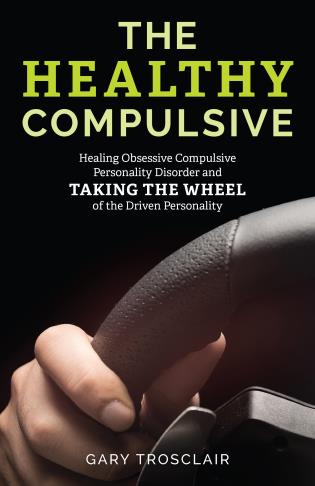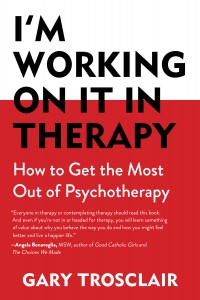Compulsive. It’s not the kind of trait that will get you a wink on a dating app. But let’s re-frame this: people who have a compulsive personality have a lot to feel good about–if they manage their energies well. Let’s remove the judgement about compulsive tendencies and find a more productive and satisfying way to live them out. Let’s find the meaning in the compulsive style.
People who are compulsive can be hard-working, thorough, determined, focused, persistent, productive, meticulous, efficient and thrifty. According to research conducted by Douglas Samuel and Thomas Widiger at the University of Kentucky, people who are compulsive are characteristically conscientious. They aim to do the right thing the right way. They go the extra mile.
But they can also get carried away and become work-addicted, rigid, judgmental, sanctimonious, mean, angry, rushed and miserly. They can become over-zealous about doing things the “right” way and seethe with resentment if you don’t go the extra mile just as conscientiously as they do.
Contents
Evolutionary Psychology and Adaptive Traits of the Compulsive Personality: What’s it For?
As a therapist and instructor I try to keep up with what’s happening in the world of theory and research –while still maintaining an awareness of its limitations. A fair amount of new theory and research supports a view that I arrived at on my own and have found to be both accurate and effective in an approach to treatment. In this perspective, rather than label people with a diagnosis based on whether they have certain symptoms, we can understand these symptoms as maladaptive versions of traits that were originally adaptive in our evolution. If we mindfully manage these traits, they can become healthy and adaptive.
In the case of compulsive traits, it’s as if nature needs some of us to have a one-pointed, determined focus that won’t let us rest until we complete a task and complete it as close to perfectly as possible. Imagine the people that made the first arrowheads, spears, or baskets, and the ones who tirelessly stalked the game that would help the tribe survive.
It’s simple. If you’re half-assed, you don’t eat. The more conscientious our ancestors were about going the extra mile to make sure their arrowheads, baskets, or hunting skills were as good as possible, the greater the chances for survival.
Within limits.
Nature being imperfect, that compulsive focus can take over and overrun all other aspects of being human. Then going the extra mile isn’t adaptive. Then rigidity blinds us to creative solutions and creates discord.
Fortunately not everyone gets these genes. Others might get genes that make them more spontaneous and more likely to find creative solutions rather than obsessing about weaving the perfect basket.
Genes and the Compulsive Personality: It’s Not Fate
If you have compulsive personality traits it’s partly because you have compulsive genes. By and large, genes pass down traits that have been adaptive. There is a reason why you are this way. Most genetic dispositions and character traits have their adaptive potential.
Nature doesn’t care if you’re happy. It just wants you to survive so you can pass on your genes. If you’re compulsive enough to make good arrowheads that can kill game, weave baskets that can hold berries, or go the extra mile to find game, nuts or berries, you’re more likely to survive.
Genes are not fate and whether you become a healthy or unhealthy compulsive is up to you. These genes create tendencies that we can cultivate and enlist in healthy or unhealthy ways. Someone who is energetic, ambitious and determined may use her strength for leadership and the good of the tribe, and therefore for her own good as well. Or she may use her traits to amass power and sow discontent. Same genes, very different outcome.
In order to be happy, you’ll need to figure out just what your adaptive traits are and how best to use them. That’s part of the project of becoming a healthier compulsive.
Honoring Our Calling: Finding the Good or Running in Circles
I’ve referred to this as a new perspective, but it isn’t really. It’s just that science is catching up to the ancient wisdom of knowing and honoring our vocation, our calling.
My 30 years of working as a therapist has confirmed for me that when it comes down to it, the real healing that we have to offer people is to help them live in accord with their unique nature in a healthy and fulfilling way. Not to try to make them into something they’re not.
This also goes for those of us with a compulsive personality. If we don’t find the potential good in it, our conscientiousness only decreases self-confidence, our perfectionism prohibits productivity, and our control cuts connections. All the potential and energy is wasted. We run in circles rather than anywhere meaningful. Conscientiousness with no purpose creates a cycle of judgment and control: self judgment lowers self esteem and then we try to fix it with more judgement and control. Rinse and repeat.
On the other hand, if we can find where all that energy wants to go, where the extra mile ideally takes us, we can run were we really need to go. And we’re all richer for it.
There are potential gifts in the compulsive personality. What will you do with them?
___________________________
If you haven’t seen it yet, check out my new book on Amazon or Barnes and Noble. If you think it would be helpful to others, please leave a review.
And, if you’d like to get all of my posts when they come out, click that subscribe button below or on the right side.





7 Comments
Leave your reply.